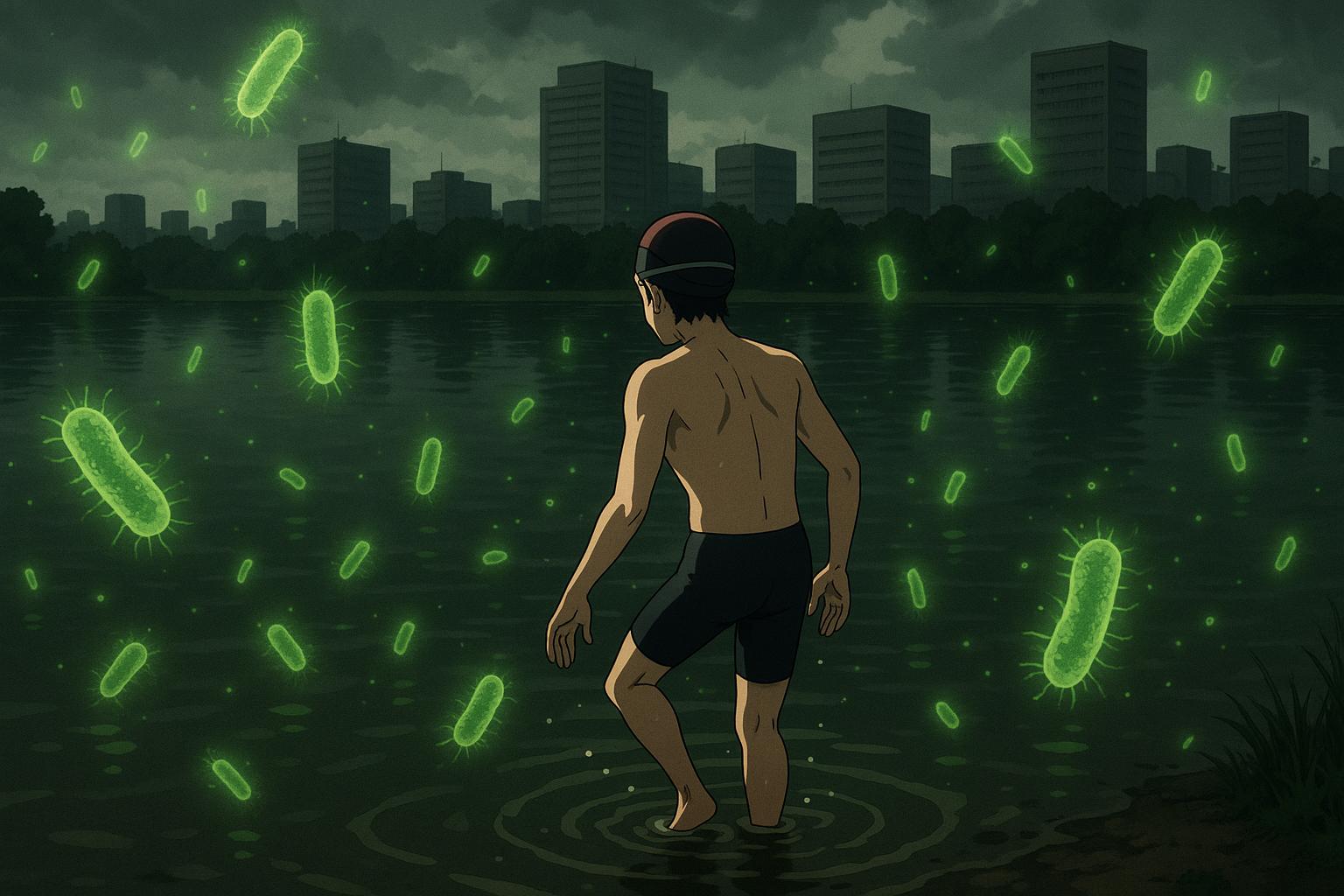The recent surge in popularity of wild swimming in the UK has brought to light alarming increases in harmful bacteria levels in several well-known outdoor swimming locations. A staggering 1,188 per cent rise in E. coli levels has been reported at the Serpentine Lido in London's Hyde Park over the past year. This bacteria, which is primarily linked to faecal contamination, poses serious health risks, including severe gastrointestinal distress and, in some vulnerable individuals, can lead to systemic infections.
The Bathing Mobility Advisory Service (BMAS) has highlighted that the Serpentine Lido, classified as sufficient for safety by the Environment Agency, recorded an E. coli level of 580 in 2024, an increase from just 45 the previous year. The situation is mirrored at Hampstead Heath's mixed pond, which saw its E. coli count rise to 310, up 230 per cent from 100 in 2023. Unexpectedly, the women’s pond at Hampstead Heath experienced a 34 per cent drop in contamination, but the overall trend remains concerning for many swimming locations.
Experts have voiced strong concerns regarding these findings, calling for more rigorous monitoring of pathogens in the water, including not just bacteria but also viruses that have not been adequately tested in these recreational settings. Professor Davey Jones, a soil and environmental scientist at Bangor University, emphasised that while E. coli can enter water systems via agricultural runoff, urban recreation activities are equally responsible for rising contamination levels. The recommendations suggest that as urban swimming gains in favor, the monitoring frameworks need to adapt accordingly, targeting viral contaminants alongside traditional bacterial assessments.
The increasing frequency and severity of water quality breaches have been further substantiated by recent statistics indicating that many designated bathing sites have recently failed to meet minimum water quality standards. An investigation revealed that numerous rivers and lakes across the UK harbour harmful substances, including industrial chemicals and E. coli bacteria. Alarmingly, a third of these locations have breached recommended E. coli thresholds, raising questions about the safety of swimming in these popular spots.
A study conducted by Imperial College London added another layer to the issue, identifying harmful pesticides in the Hampstead Heath ponds, exacerbating the concern over water quality. The tests found levels of pet treatment chemicals at alarming rates, well above what is deemed safe for aquatic life. This highlights the significant impact of everyday consumer products, suggesting a dire need for public awareness regarding prevention strategies to mitigate contamination of these vital natural resources.
Amelia Hornsby from BMAS pointed out that ensuring high water quality is crucial for both public safety and ecological health. With the advent of more open water swimming initiatives, keeping standards consistently high is imperative not only for swimmers but also for preserving the natural environment.
Despite the potentially dire health risks associated with contaminated water, advocates for open water swimming continue to promote its benefits. They cite studies illustrating the positive impact of cold water exposure on the immune system and mental health, claiming it enhances mood and can even contribute to weight management. However, experts urge caution, noting the absence of definitive scientific evidence linking cold water immersion directly to enhanced mental well-being.
Ultimately, as the appeal of wild swimming continues to rise in the UK, it becomes increasingly vital for health authorities and environmental agencies to address these concerns rigorously. The expectation is not only to protect swimmers from harmful pathogens but also to ensure that the waterways remain safe and enjoyable for all users.
Reference Map:
- Paragraph 1 – [1], [2]
- Paragraph 2 – [1], [3], [4]
- Paragraph 3 – [2], [5]
- Paragraph 4 – [4], [6]
- Paragraph 5 – [1], [2], [3]
- Paragraph 6 – [1], [1]
- Paragraph 7 – [1], [3]
- Paragraph 8 – [6], [7]
Source: Noah Wire Services
